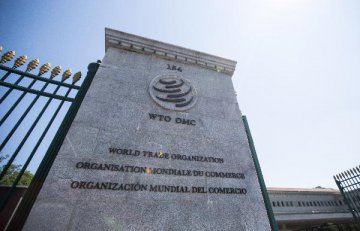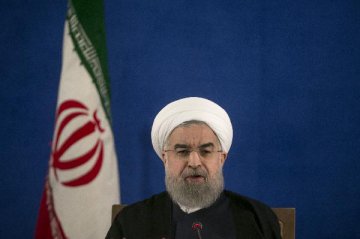
The following is the full text of the Joint Press Release of the Third "1+6" Roundtable on November 6 in Beijing.
China's Premier Li Keqiang of the State Council, together with World Bank Group (WBG) President Jim Yong Kim, International Monetary Fund (IMF) Managing Director Christine Lagarde, World Trade Organization (WTO) Director-General Roberto Azevedo, Organization for Economic Cooperation and Development (OECD) Secretary-General Angel Gurria, Financial Stability Board (FSB) Chairman Mark Carney and International Labor Organization (ILO) Deputy Director-General Deborah Greenfield (hereinafter referred to as "we"), held the "1+6" Roundtable in Beijing, and reached the following common understanding:
1. The global expansion remains strong, but growth plateaued and some downside risks have materialized. Overall, risks are increasingly skewed to the downside. We are concerned about a further escalation of trade tensions, and the spillover effects on vulnerable emerging markets from the gradual normalization of monetary policy in advanced economies. We are also closely monitoring possible impacts on employment from these economic developments. We call on countries to ensure strong macro policy frameworks, build policy buffers to absorb possible shocks, work together to de-escalate and resolve current trade tensions, and further pursue domestic reforms to strengthen economic fundamentals and financial resilience.
2. We are very strongly concerned about trade protectionism. We call on all parties to jointly uphold multilateralism, support free trade, support the positive role of multilateral institutions in global economic governance, support a rules-based, open, transparent, inclusive and non-discriminatory multilateral trading system, work together to build an open world economy, and foster sound development of globalization. We believe that countries should work to optimize and better distribute the benefits of trade, and strengthen the multilateral trading system, including by enhancing the effectiveness of the WTO dispute settlement mechanism and, resolving the impasse on the selection of WTO Appellate Body Members as soon as possible. We call for countries to refrain from trade and investment protectionism and unilateral measures, improve trade rules, enhance transparency, and promote trade and investment liberalization and facilitation.
3. We call for improved global economic governance based on the principles of consultation, cooperation and benefit for all. We support relevant reforms to ensure the effectiveness of international institutions, so as to consolidate the basis for multilateralism. To this end, we look forward to progress in the IMF's 15th General Quota Review; we welcome the approval of the IBRD capital increase resolutions which is a critical first step towards effective implementation of the World Bank's shareholding realignment; we support the efforts to improve and strengthen the role of the WTO ;we also support continued improvement of the Global Financial Safety Net with a strong, quota-based and adequately resourced IMF at its center, and call on countries to continue to promote financial sector reform, and enhance their capacity to withstand financial risks. We stress the importance of timely, full and consistent finalization and implementation of global financial sector reform agenda, and support the FSB to continue evaluating the effects of the reforms and monitoring financial vulnerabilities and emerging risks, and promote an open and resilient global financial system through continued regulatory cooperation.
4. The international community should continue to place development as a priority issue in the global macro-policy framework and jointly implement the 2030 Agenda for Sustainable Development. Multilateral development institutions should actively promote the interconnectivity of infrastructure, and facilitate international cooperation on development. In the relevant reforms of international rules, issues relating to special and differential treatment need to be handled in a balanced way to reflect the interests of all members, especially developing countries. Efforts to build the capacity of developing countries to participate in and benefit from the global economy should be strengthened.
5. The Chinese economy, with its stable and positive performance, will continue to serve as one of the leading driving forces for global growth. We support China's efforts to implement the new development concept, pursue supply-side structural reforms, streamline administrative procedures, cut taxes and fees, optimize the business environment, level the playing field for all enterprises, further stimulate the vitality of market players, improve the institutions and systems for boosting employment and consumption, and promote high-quality development, with the market playing a decisive role in resource allocation and the government better playing its role.
6. We welcome the opening of the first China International Import Expo and welcome China's efforts to promote a new round of high-standard opening up to the outside world. China will continue to implement policies to support high-standard trade and investment liberalization and facilitation, expand the use of foreign investment, and continue to optimize the trade and investment environment.
7. We note that a new industrial revolution is in the making. Seizing the opportunities of a digital age is crucial for unleashing the new growth drivers of the world economy. We call on governments to strengthen R&D, and promote cooperation on new technologies such as artificial intelligence, big data, the Internet of Things and cloud computing. We also call for more actions to properly address the challenges brought about by the digital transformation, especially the possible impacts on employment and income distribution, step up relevant education, apprenticeship and vocational training to ensure appropriate skills development and provide workers with opportunities to adapt during their working life, strengthen social protection, and take job creation and decent work as one of the key objectives in nurturing new growth drivers. We look forward to the outcome of the ILO Centenary Initiative on the Future of Work and notice the progress of the OECD Future of Work Initiative.
8. We support the objectives of the Belt and Road Initiative and its synergy with other relevant regional connectivity initiatives to facilitate open and inclusive economic cooperation, ensure affordable, accessible, inclusive and broadly beneficial infrastructure to enhance connectivity and trade and investment liberalization and facilitation of participating countries. We emphasize the importance of social, fiscal and environmental sustainability of projects, while striking a good balance among economic growth, social progress and environmental protection. We support the establishment of economic, industrial and trade cooperation platforms with a focus on infrastructure projects and industrial cooperation, while drawing on international standards, respecting country specific conditions and following market rules. We stand ready to further strengthen policy exchanges, capacity building, financing cooperation, risk management, transparency and promote sustainable and inclusive global development.
9. We look forward to continuing our dialogue next year.






















Latest comments